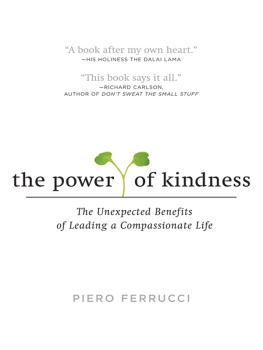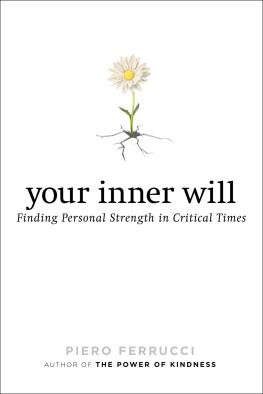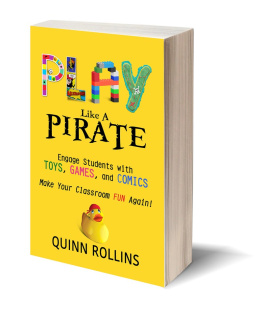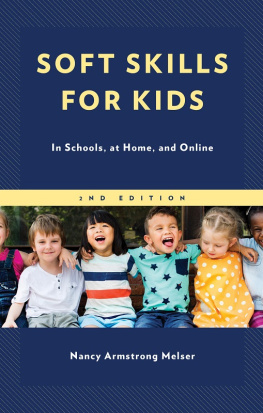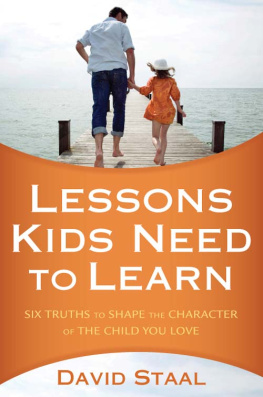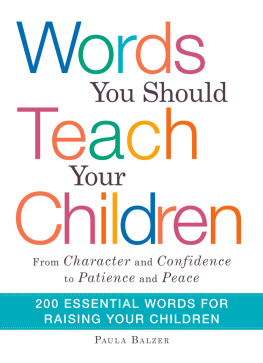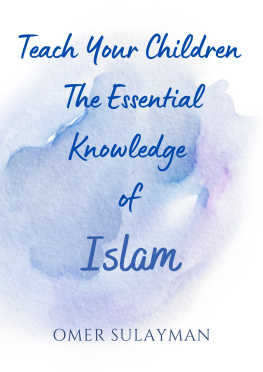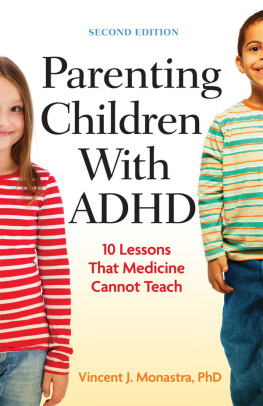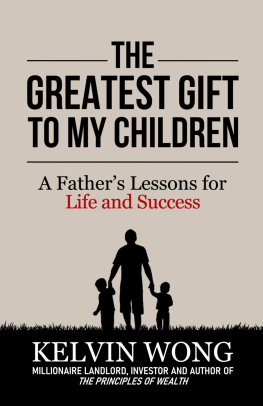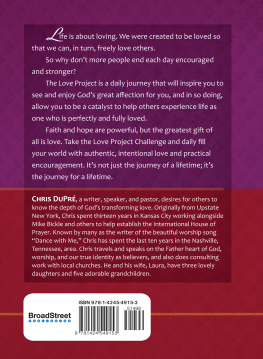Piero Ferrucci - What Our Children Teach Us: Lessons in Joy, Love, and Awareness
Here you can read online Piero Ferrucci - What Our Children Teach Us: Lessons in Joy, Love, and Awareness full text of the book (entire story) in english for free. Download pdf and epub, get meaning, cover and reviews about this ebook. year: 2001, publisher: Grand Central Publishing, genre: Home and family. Description of the work, (preface) as well as reviews are available. Best literature library LitArk.com created for fans of good reading and offers a wide selection of genres:
Romance novel
Science fiction
Adventure
Detective
Science
History
Home and family
Prose
Art
Politics
Computer
Non-fiction
Religion
Business
Children
Humor
Choose a favorite category and find really read worthwhile books. Enjoy immersion in the world of imagination, feel the emotions of the characters or learn something new for yourself, make an fascinating discovery.

- Book:What Our Children Teach Us: Lessons in Joy, Love, and Awareness
- Author:
- Publisher:Grand Central Publishing
- Genre:
- Year:2001
- Rating:3 / 5
- Favourites:Add to favourites
- Your mark:
- 60
- 1
- 2
- 3
- 4
- 5
What Our Children Teach Us: Lessons in Joy, Love, and Awareness: summary, description and annotation
We offer to read an annotation, description, summary or preface (depends on what the author of the book "What Our Children Teach Us: Lessons in Joy, Love, and Awareness" wrote himself). If you haven't found the necessary information about the book — write in the comments, we will try to find it.
What Our Children Teach Us: Lessons in Joy, Love, and Awareness — read online for free the complete book (whole text) full work
Below is the text of the book, divided by pages. System saving the place of the last page read, allows you to conveniently read the book "What Our Children Teach Us: Lessons in Joy, Love, and Awareness" online for free, without having to search again every time where you left off. Put a bookmark, and you can go to the page where you finished reading at any time.
Font size:
Interval:
Bookmark:
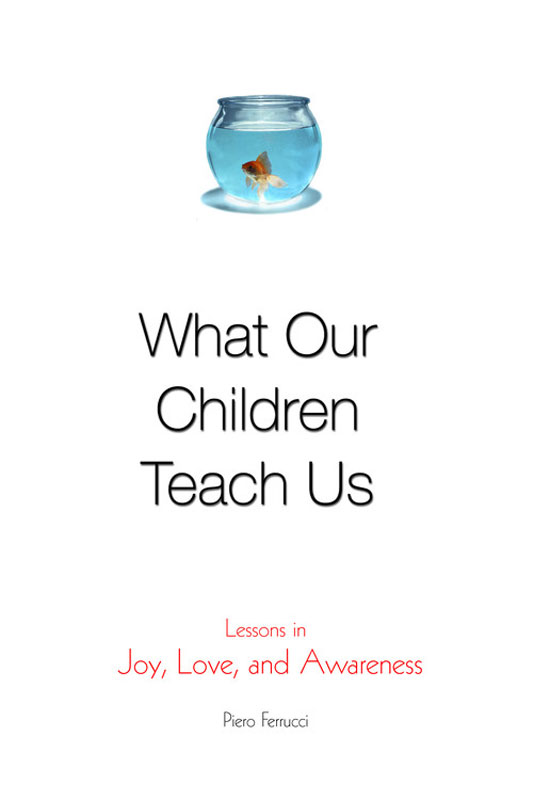
WHAT OUR CHILDREN TEACH US. Copyright 2001 by Piero Ferrucci. All rights reserved. No part of this book may be reproduced in any form or by any electronic or mechanical means, including information storage and retrieval systems, without permission in writing from the publisher, except by a reviewer who may quote brief passages in a review.
Warner Books,
Hachette Book Group
237 Park Avenue
New York, NY 10017
ISBN: 978-0-7595-2241-1
A hardcover edition of this book was published in 2001 by Warner Books.
First eBook Edition: April 2001
Visit our website at www.HachetteBookGroup.com.
Down on all fours, I am searching for a tiny plastic wheel. It has come off a toy car belonging to Emilio, my five-year-old son. He is upset. I am tired and irritated. I have already looked everywhere for this worthless object, and now I am starting all over again. Emilio really wants it. I rummage behind the divan, under the furniture, among the folds and cushions of the armchair. A reluctant slave, I move about with difficulty in these strange and dusty spaces.
Emilio tags along anxiously, following my investigation, offering advice. During my search, many thoughts crowd my brain. What am I doing, looking for this silly toy wheel? How can I stoop so low? Why do I pander to his every whim? I think about how my life has changed since my first child was born, how much of my time is spent in banal and tiresome activities like this. Sometimes I feel I am the captive of some crazed tyrant. Who was that English psychiatrist who said the family is the forge of madness? However hard I try to remember, I fail.
Then my mood changes. By some curious paradox, dealing in such small matters makes me feel bigger. As I bend low, my spirit feels higher. Simply by helping a child, I feel more open. Somehow, it does me good to remove myself from those lofty places where everything has a purpose and to waste time crawling about in a colorless world of forgotten fragments. I take myself less seriously and become a little nicer.
I even manage to find the tiny wheelit had ended up in a crack in the floor. What a triumph! The car is once more whole, the world is functioning again. Emilio smiles.
These days my best intuitions occur during moments like this. Nothing dazzling, but when I add them all up, I have a pretty good collection. Doubtless, I used to have much more time before I became a parent. I could read, write, think. I was able to listen undisturbed to good music and to meditate, elevating my mind above my little personal sphere. I considered daily routines a distraction, if not a nuisance.
Nowadays, instead, I look for little wheels. At the end of the day, I am exhausted. Yet it seems to me that my life is far deeper and richer than it ever was before. I have come to see that each moment of parenting, no matter how annoying or trivial, has hidden surprises and opportunities for change and, at times, glimmers of wisdom.
That is the theme of this book: Living with our children enriches and transforms us. It is like doing an intensive course of study that puts us through all major life experiences, giving us a deeper understanding and a sharper attention: beauty, love, innocence, play, pain, and death, everything appears in a new light.
Another example. It is a lovely evening in late spring. The air is clear and I am walking the city streets with Jonathan, my second child, who at the time is a few months old. I hold him in my arms, feel him close to me. After observing a passing parade of cars and people, hes about to fall asleep, and he chatters to himself, his voice like some strange chant, exquisitely sweet and beautiful.
I feel I have on my chest a treasure that has been entrusted to my wife Vivien and me. A miracle, whose growth I have the daily privilege of witnessing. Right now it is his voice that fills me with wonder: a voice that says nothing, as it cannot yet form words, but says everything, because you can hear in it the pleasure and tranquillity of a baby who is at peace, who surrenders to sleep.
I hold a hand behind his head and feel the vibration of Jonathans gurgling. These tiny vibrations have a mysterious power. They enter me and propagate in me. They transmit to me, with striking directness, his innocence. I feel immense gratitude.
This is one of the many moments when being with my children enriches me. These are moments of joy and tenderness. Afterward I am no longer the same. My anxieties and ruminations vanish. It is as if I were more in touch with life. I feel more real.
Living with our children allows us to grow. I am convinced that this is so for everyone. With children we have the opportunity to cultivate patience and humor, deepen the intelligence of the heart, learn to find hidden richness in ordinary life, find unexpected happiness.
Nevertheless, this transformation is not always painless. Alongside moments of joy there are also challenging trials, in which our weaknesses, our lies and hypocrisies, our doubts and contradictions, our shortcomings, are all brought under the most pitiless light. And yet this is how change often happens.
Here is an example. Emilio spies one of my new pens and asks, Daddy, can I have it? Yes, you may
Thank you, Dad.
if youre good and dont do anything naughty.
Oh, well, thanks a little less, replies Emilio, skipping away, no longer interested in the pen.
Unmasked. My son mercilessly shows me, as in a mirror, my paternalistic attitude. How would I feel if someone offered me something I wanted as long as you are a good boy? What a disagreeable way to give! And yet that is what I am like. Emilios reply shows me a part of myself I dont like. It may make me uncomfortable, but it changes me.
Before I had children, I would observe parents and feel a sense of superiority and self-satisfaction. Most parents seemed awkward and pathetic to me. I am a psychologist, and full of my psychological know-how, I used to note their mistakes, secretly criticize them and offer a whole lot of advice. I was sure I could do better.
Now, two children later, I am a good deal humbler. All my theories have tumbled like a house of cards. Having fallen flat on my face many times, I have lost all certitude.
But no matter. In order to understand something and move on, we have to empty ourselves of our certainty and complacency. This is the first step.
Like every parent, I have been stung, squeezed out, wounded, reprogrammed, turned inside out, never let off the hook. How often have my children, with a diabolical instinct, touched those weak points I kept carefully concealed! These episodes have transformed me.
In a hard and painful way, they have made me different from the person I was before, like no course of psychotherapy, no spiritual retreat, no meeting with an Oriental guru could have done.
Living with our children is a mine of revelations, pleasant and unpleasant. And it is a grind. Try stringing together all the meals you will have to prepare for them till they leave home. It would end in galactic outer space. The sheer slavery of it! And what about the frictions, the disappointments, the arguments, the illnesses, the bills to pay?
What parent ever anticipates any of this at the outset? I imagine all the things I could have done if I had not had children. I reminisce about the times Vivien and I could talk for five minutes without being interrupted.
And having children also brings out the darker sides of our personality. If we tend to play the victim, if we are jealous, or if we like to control others, we can really go to town with our children. If we tend to worry, we can become even more anxious: Our children are perfect subjects for the most terrifying fantasies. Our existing neuroses, rather than disappear, become amplified.
Font size:
Interval:
Bookmark:
Similar books «What Our Children Teach Us: Lessons in Joy, Love, and Awareness»
Look at similar books to What Our Children Teach Us: Lessons in Joy, Love, and Awareness. We have selected literature similar in name and meaning in the hope of providing readers with more options to find new, interesting, not yet read works.
Discussion, reviews of the book What Our Children Teach Us: Lessons in Joy, Love, and Awareness and just readers' own opinions. Leave your comments, write what you think about the work, its meaning or the main characters. Specify what exactly you liked and what you didn't like, and why you think so.

